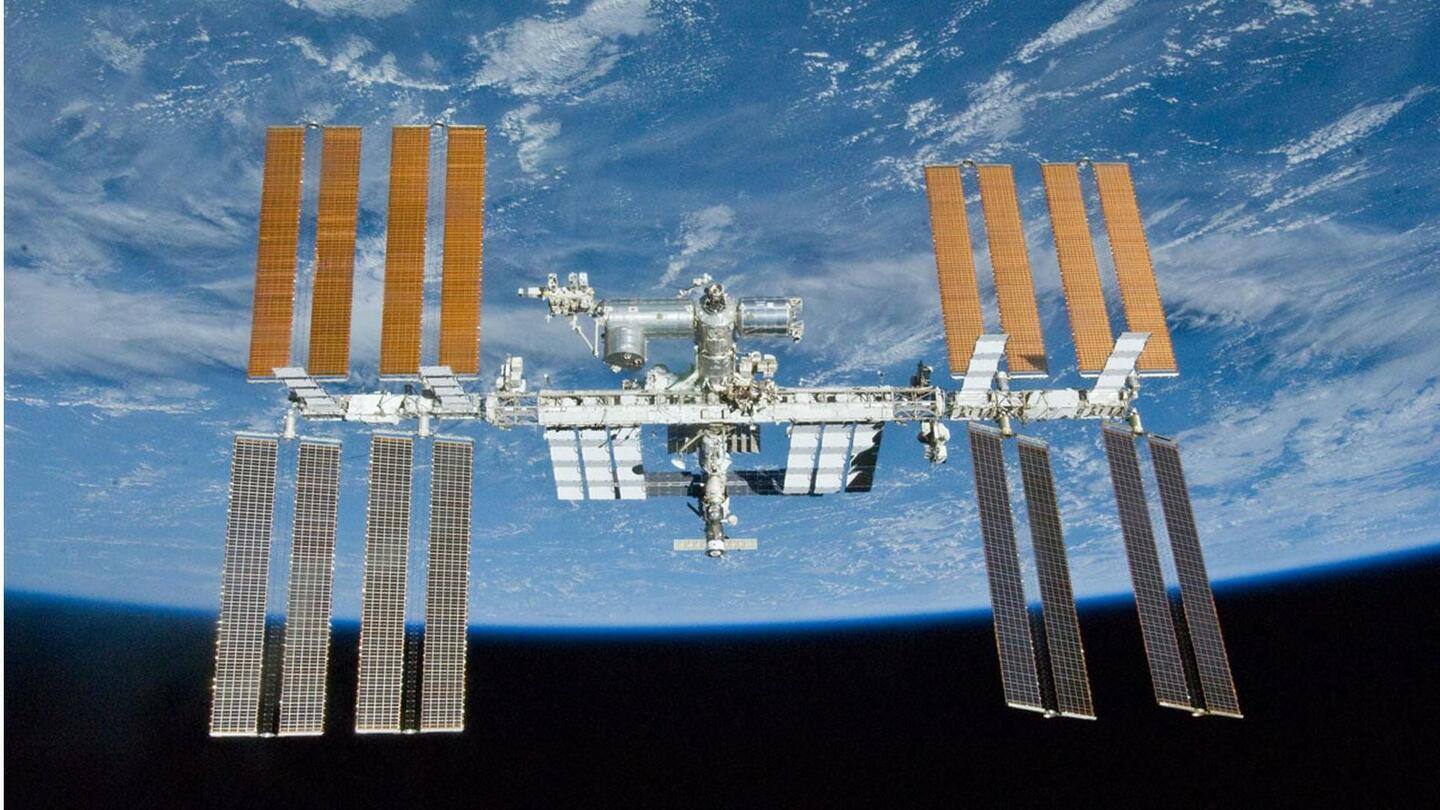
ISS spacewalk scrapped after "significant leak" from Soyuz spacecraft
What's the story
The scheduled ISS spacewalk has been canceled after two Russian astronauts, called cosmonauts, noticed a "significant leaking of an unknown substance" in the Soyuz MS-22 spacecraft.
The canceled spacewalk would have been the 12th this year and the 257th in the history of the space station.
NASA has confirmed the onboard seven-membered crew is safe and the space station is in good condition.
Context
Why does this story matter?
The ISS has been continuously occupied since 2000. It measures 108m from end-to-end, the length of an American football field, and completes an orbit around Earth every 90 minutes.
It is operated by a US-Russian-led partnership that includes Canada, Japan, and 11 other European countries.
The research conducted at the ISS will help plan future manned missions in space.
Official blog
The Soyuz spacecraft took off on September 21
According to the official NASA blog post, "ground teams in Moscow are evaluating the nature of the fluid and potential impacts on the integrity of the Soyuz spacecraft."
Two Russian cosmonauts- Sergey Prokopyev, and Dmitri Petelin, and a NASA astronaut- Dr. Frank Rubio, were on the Soyuz MS-22 spacecraft that lifted off from the Baikonur Cosmodrome in Kazakhstan on September 21.
Information
A spacewalk scheduled for late November was also canceled
This time, the walk was canceled due to a coolant leak that began at 7:45 pm EST on December 14 (6:15 am IST, December 15). Previously, a spacewalk that was scheduled in late November was scrapped due to faulty cooling pumps in the cosmonauts' spacesuits.
Details
The leak appeared to be a stream of snowflake-like particles
The leak, which was captured on NASA's live webcast, emerged from the rear section of the Soyuz spacecraft, docked to the Rassvet module on the ISS. It appeared like a stream of snowflake-like particles.
Prokopyev and Petelin were supposed to shift a radiator on Soyuz during the now-canceled spacewalk.
The ISS crew comprises three US NASA astronauts, a Japanese astronaut, and three Russian cosmonauts.
Twitter Post
ISS's statement about the canceled spacewalk
Tonight's spacewalk with cosmonauts Sergey Prokopyev and Dmitri Petelin is cancelled as mission controllers evaluate the impact of a coolant leak seen on the Soyuz MS-22 crew ship. The space station is in good condition and the Expedition 68 crew is safe. pic.twitter.com/olEblc4NEO
— International Space Station (@Space_Station) December 15, 2022